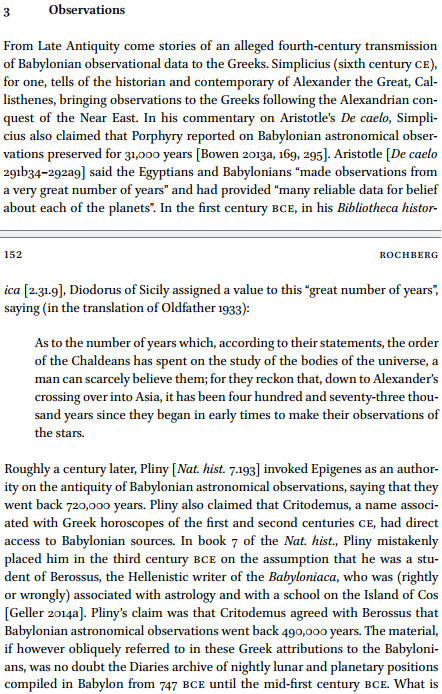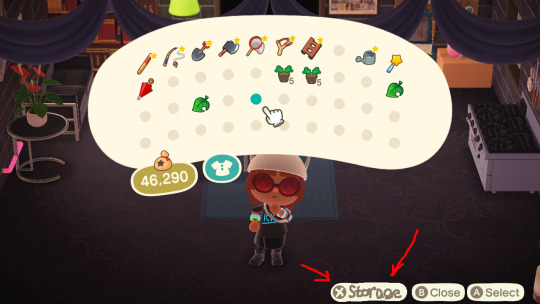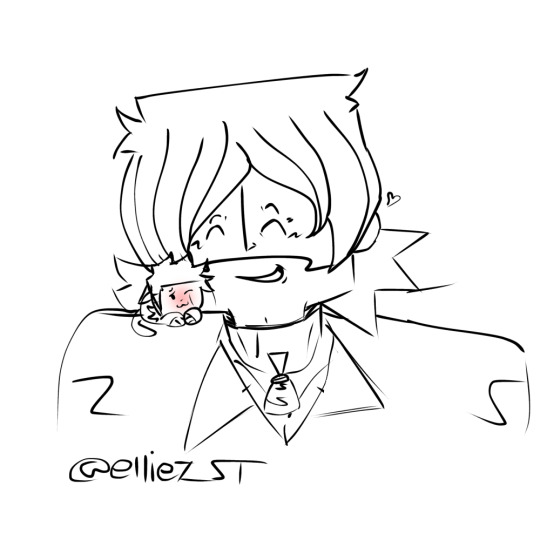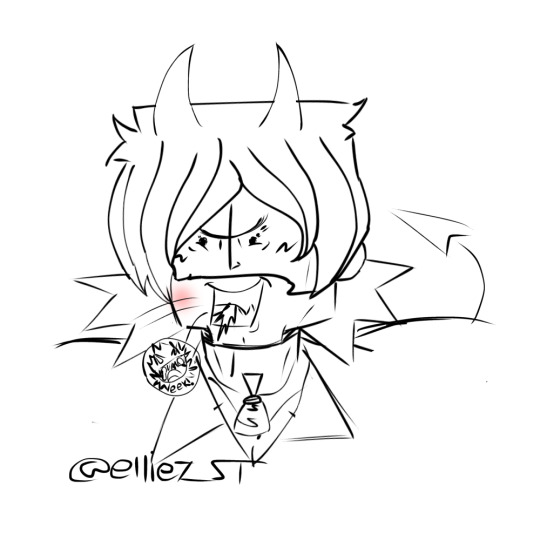#chron: present
Explore tagged Tumblr posts
Note
Could you draw Chron? (Chris x Don)
these two?

personally i don't ship it but i can see why people do lol
ps. sorry if i'm a little late with the answer, for some reason ibis paint on windows has a 1 hour time limit unless i pay,,, will work on that soon
#total drama#tdi#chris mclean#chris mclean total drama#chris td#td chris#total drama chris#doodle#tdi chris#total drama island#td don#don total drama#total drama presents the ridonculous race#ridonculous race#tdrr#total drama presents: the ridonculous race#chris x don#chron
40 notes
·
View notes
Text
more chron , did i eat gang

#chron#chris mclean#don#chris td#don td#tdrr don#total drama#total drama presents: the ridonculous race#td#tdi#td ships#ships#shipping#shipart#tdrr#art#artists on tumblr
33 notes
·
View notes
Text

Rochberg F. "The Babylonian Contribution to Greco-Roman Astronomy" pp. 147–159 (here pp. 151–152), Chapter 4.7 in Hellenistic Astronomy: The Science and Its Contexts (2020), ed. Bowen A. C., Rochberg F.
I just find the history of chronology and chronometry fascinating and it seems like an interesting point to consider when judging fantasy worldbuilding whether the in-universe dating is presented as “objective” (the in-universe dating being presented as fact and the reader not given any reason to question it) or “subjective” (there being in-universe disagreements about it and the reader – either more or less obviously – supposed to question it).
pro-tip: don't ever use the sentence "thousands of years" in your worldbuilding unless you really know what a thousand years is like
#i considered making this its own post but i do want to have all of this in one place#sorry!#bc i do realize most fantasy worldbuilding does not present in-universe dating as subjective so i can appreciate the point of the op#but since grrm was being called out specifically when he is also one of the rare subjective in-universe dating types – more interested in#meta-historiography i.e. how history of the world of asoiaf is written about in a kind of in-universe scholastic program#rather than e.g. writing a book about the world of asoiaf as an author himself giving “objective” information#(woiaf being the work of an in-universe maester is very intentional!)#like‚ having reliable dating methods is a fairly recent thing and people kind of forget how the advances of the last century or two have#changed our ability to rely on that#and how different saying “thousands of years” today is to having said “thousands of years” a couple centuries ago#the former fitting into an organized chronology going back 13.8 billion years#and the latter with only a crude relativistic reference frame if any at all (esp in a fantasy setting without e.g. biblical creation myths)#(the latter crude case being what grrm would be interested in)#j#chron#oh and to qualify the “having said “thousands of years” a couple centuries ago”: at the end of 17th century newton's calculation for the ag#of the earth was 50 thousand years#and if anyone could point me to any earlier (non-biblical) estimation i'd be grateful!#because i couldn't find any
62K notes
·
View notes
Text


modern party,,,,,,, if you even care,,,,, (hcs under the cut)
will -> does not go anywhere without his earbuds. either listening to his playlists which are meticulously crafted to represent his exact mood or listening to a podcast. probably has an ipod for the vibes. curates his instagram feed & spotify wrapped. big youtube watcher and video essay connoisseur. addicted to iced caps. he is the digital camera person of the group and after every hangout he is uploading the pics to a google drive as fast as he can. sneakerhead. vinyl collector. BIGGG horror buff, is always dragging the party to watch the grossest most disgusting horror films you can think of knowing damn well he is the only one who enjoys that shit. he capitalizes random words when he's texting Like This. whenever he goes out in public he makes sure he's playing the most niche song he can think of so that if someone asks him what he's listening to he can look cool.
mike -> in the emo scene if you can't tell. despite being chronically online he has no social media presence whatsoever. his profiles are completely blank and devoid of any personality.,,, he probably has a profile pic and that's it. this guy is playing mysterious like his life depends on it. MASSIVE cinephile and letterboxd warrior, extremely pretentious when it comes to films, his fav director is either tarantino or fincher. from his taste in music and movies he comes across as a Male Manipulator but he is not trust!! hardcore gamer, his favs are phasmophobia minecraft and the walking dead. probably has a secret youtube or twitch channel that he's been desperately trying to grow (it's failing miserably). has a tamagotchi. can play guitar but he's really, really bad at it. has a collection of saved anakin skywalker edits. scott pilgrim fan. wrote fanfiction for klance. has a tumblr account. owns a nintendo switch, his fav game is breath of the wild. his screen time is ridiculous. cd collector. annotates books.
el -> ticketmaster WARRIOR. she has survived the great war many times . loves story based video games such as life as strange (she picks bae over bay because she's emotionally attached to chloe) and lost records. LOVES minecraft. she forces everyone to get on the server whenever she plays, is the builder of the group. she's more of a tv person than a movie person. her favourite shows are gilmore girls, one tree hill, the oc, etc... has a bunch of hobbies, but she mostly likes to crochet and paint. has a lot of lego sets that she likes taking apart and redoing for fun. has penpals. pinterest user. was a phan girlie in her youth and defo was on ao3 for a hot minute. when she's not in her minecraft phase she's playing the sims. yogurt bowl lover and connoisseur, she has a tiktok dedicated to making yogurt bowls and is really committed to the presentation, she spends more time making it than actually eating it. sinjin drowning watcher. horrible texter. committed to scrapbooking and saves most of her receipts so she won't Forget anything.
max -> crazy curl routine that she gives up on half-way through (diffusing is not for the weak). she's probably the most chronically online after mike. will quote something she saw on tiktok only for no one to laugh because it hasn't reached their feed yet. her favourite show is probably yellowjackets. cd collector. loves gaming, her favourites are roblox arsenal, valorant, and tlou. owns a polaroid camera. in 2020 she had her alt indie kid phase and made videos with her skateboard with the saturation cranked up to max. stephen king fan, her favourite book is carrie. thrifts most of her clothes, music, and books. absolutely HATES fast fashion/consumerism trends with a passion. has a goodreads account, she convinced will and mike to join but they're not as active as her. WILL stalk your profile even if she's spoken to you once. loves victorious. in therapy.
lucas -> embodiment of if he wanted to he would. his entire feed is literally just of max. least chronically online out of the party because he actually has a life. best fashion sense out of all of them. he always has those tiktok interviewers coming up to him to ask what song he's listening to or where he got his clothes from. clairo boy. always sending max instagram reels of cute dogs and going "us ❤️" . he is not immune to those gym bro meal inspo videos and has stacks upon stacks of protein powder in his pantry. doesn't really have a music taste and thinks everything is good music, which will and max can't wrap their heads around. will occasionally indulge in anime . watches love island with max and erica. posts his aesthetic pictures on pinterest. finds brainrot genuinely amusing and will quote it all the time around the party to annoy the shit out of them, even though he doesn't understand what it means.
dustin -> cringe content enthusiast!! matcha and tea enjoyer. can play guitar and has a really lovely singing voice, he posts covers to youtube or soundcloud. he likes all these niche bands and attends local shows. cannot eat a meal by himself without watching good mythical morning, rhett is his favourite. watches markiplier, matpat, kurtis conner, etc... big time star wars nerd, he and mike love reenacting fight scenes with their lightsabers. had a vine account (rip). like el he also loves legos, he especially adores those 3 in 1 sets and has a whole ass city. plays the wii and has a 3ds, his favourite game is either donkey kong or tomodachi life or detective pikachu. on el's minecraft serve he is the designated miner and makes all these elaborate redstone contraptions. abuses the shit out of reddit, he is up to date on all the leaks on his fav marvel movies & shows and is a chronic tech user so he turns to reddit for all of his Information.

if you are interested in more modern party hcs I made a whole post with the party's music tastes ! (thanks for 2k followers btw!!! love you all 🫶 aly nation going strong)
#ignore how mike looks like robbie shapiro BYE#this was soooo freaking fun I really want to draw more with them#+ i mayhaps have their letterboxd profiles cooking up 👀#mike wheeler#will byers#max mayfield#el hopper#dustin henderson#lucas sinclair#byler#lumax#elmax#stranger things#stranger things fanart#aly draws#also look how CUTE el and max are they are by far my favs in this piece#aly hcs#the party#1k+
1K notes
·
View notes
Text
While Kleopatra VII is the most well-known Ptolemaic queen, she was not the oddity of feminine rulership that she is often represented as, and, instead, her power was predicated on a long line of female achievement. [...]
Just as with the royal women who came before her, Kleopatra VII received a Greek style education, which allowed her to interact in and excel at the politics of her day. In fact, she is the Ptolemaic queen whose education is the most explicitly referenced in the ancient sources (see, for example, Plut. Vit. Ant. 27; Cic. Att. 15.15). She also must have built an extensive network of philoi who helped her govern the kingdom over the course of her long reign. For instance, her philos Apollodorus is named by Plutarch, but he also indicates that she had many others when he says that Apollodorus was the only person “among her friends” (τῶν φίλων) that Kleopatra permitted to go with her to Caesar at their first meeting (Plu. Vit. Caes. 49).
Similarly to her predecessors, Kleopatra was referenced in the dating protocols utilized during the various periods of her rule, and they also shed light on her induction into the dynastic cult and the various epithets she adopted. Kleopatra ascended to the throne at the death of her father in 51 BCE (iBucheum 13; Porph. in Eus. Chron. 1.167-168, ed. Schoene; Strab. 17.1.11), and thereafter took on the epithet Thea Philopator [...] in honor of him. She may have been appointed as Ptolemy XII’s co-ruler during the last year of his reign, from 52-51 BCE, in the same pattern as Kleopatra Berenike III and Ptolemy IX, so the transition from father to female-heir was a smooth one, at first. Although Kleopatra and Ptolemy XIII ostensibly inherited the throne together, as a ruling pair, the documents of the year 51 BCE list only Kleopatra’s name, and the dating protocol makes use of the feminized form of the verb “to reign” (βασιλευούσ̣ης [...]), demonstrating that she was the dominant ruling figure (iBucheum 13; iGFayum 205; PSI 10.1098). Her brother, with the help of his philoi, contested her rule in 50/49 BCE, and she was expelled for a time in 48 BCE (Caes. BCiv. 3.103).
In 47 BCE, Kleopatra was placed back on the throne with her younger brother, Ptolemy XIV, by Caesar after the events of the Alexandrian War (Strab. 17.1.11; Porph. in Eus. Chron. 1.167-169, ed. Schoene; Ps.-Caes. BAlex. 33.1-2; Dio Cass. 35-44; Suet. Jul. 35.1; App. Civ. 2.90). In an effort to uphold Ptolemaic tradition, they likely married at this time (Dio Cass. 42.44) and were inducted into the dynastic cult as the Theoi Philopatores kai Philadelphoi [...]. From 47 BCE until her brother-husband’s death in 44 BCE, Kleopatra was again the dominant co-ruler, as demonstrated by papyri and the dating protocols in which Kleopatra’s name was placed before that of Ptolemy XIV (P. Oxy. 14.1629; Appendix C). Afterwards, from 44 BCE until her death, she co-ruled with her son, Ptolemy XV Caesarion (OGIS 194; BGU 14.2376; SB 4.7337 = THI 5), but again, in this arrangement, she served as the dominant co-ruler.
Her role as dominant queen was also demonstrated by the hieroglyphic titles she was presented with on temples. At the temple of Montu at Hermonthis, accompanying scenes of the birth of Ptolemy XV, Kleopatra was granted the title hk3.t (“ruler”) and two female Horus names [...]. The title “ruler,” which had been utilized by many of her predecessor provided her with cultic visibility and authority. Her Horus names, which had previously only been granted to the most powerful queens of the dynasty, including Berenike II and Kleopatra III, acknowledged both her assumption of kingly prerogatives and her standing as one of the most politically active and authoritative queens of the dynasty.
In her monumental depictions, Kleopatra VII unquestionably emulated the powerful women that came before her. The stele iGFayum 205 (= Louvre E. 27113), which is dated to July 51 BCE, depicts Kleopatra VII offering to Isis, and in the carving, Kleopatra is portrayed as a male pharaoh in a pointed kilt and pharaonic double crown. Bianchi points out that this is likely because the stele was carved for Ptolemy XII before his death and then repurposed for Kleopatra VII, but it also neatly fits Kleopatra in with the masculinized imagery utilized by Hatshepsut, Kleopatra III, and Berenike IV. It also demonstrates Kleopatra’s early intentions to rule as a dominant power and to take on kingly attributes, as she did throughout the course of her reign.
Much like Kleopatra III, Kleopatra VII was depicted making offerings to the gods alone in temple scenes, including at Kom Ombo where she is depicted presenting Ma’at to the gods. In fact, of all the Ptolemaic queens, Kleopatra VII was depicted twenty-five times alone before the gods, more than any of her predecessors. And, although previous queens had been depicted offering to the gods alone, the presentation of Ma’at had hitherto only been conducted by male pharaohs, even when they were junior co-rulers. Accordingly, in these scenes, Kleopatra was using the example of previous queens, but she also built on their achievements by taking that traditionally male motif, the offering of Ma’at, on herself, demonstrating her superior power.
This combining of queenly and kingly prerogatives is echoed in the scenes where Kleopatra VII appeared with Ptolemy XV, and, again similarly to Kleopatra III, her image was carved before that of her son, such as on the mammisi of Hermonthis. In these scenes, although depicted with kingly powers, Kleopatra was also depicted with the traditional queenly headgear of Ma’at plumes and solar disk that assimilated her to Isis and Hathor. In fact, many of the scenes at Hermonthis, both those of her alone and with her son, strive to associate Kleopatra with Isis and Hathor in their roles as mother and child-bearer. So, it seems she was aware of both the kingly attributes she was portraying and the queenly traits she wanted to emphasize in order to put forth the strongest image of her rule. In other scenes, including at Dendera, Kleopatra VII is depicted wearing Arsinoe II’s unique queenly crown. This not only shows her attempt to associate herself with one of her most powerful predecessors, but it can also be interpreted as her attempt to take for herself the kingly attributes with which Arsinoë had been depicted.
Overall, Kleopatra VII’s greatest achievement is that she co-ruled for the entirety of her reign, but, because of the extensive authority and dominant power she wielded, she is remembered as a basilissa-regnant. That she is remembered this way, even after the character assassination undertaken by later Roman authors, speaks to the incredible authority she wielded and the powerful imagery she built for herself, since many of her greatest achievements were later covered up or twisted by propaganda.
— Tara L. Sewell-Lasater, Becoming Kleopatra: Ptolemaic Royal Marriage, Incest, and the Path to Female Rule (Dissertation, University of Houston, 2020)
#Kleopatra VII#Cleopatra VII#historicwomendaily#women in history#egyptian history#ptolemaic history#ancient history#my post
25 notes
·
View notes
Text
(Long post, there's a poll at the end.)
So just now @lahnsette-maekohlira linked me to an article about Hello Kitty Island Adventures, which does two things Animal Crossing doesn't: playable animal characters and unlimited inventory.
That was meant as suggestions for Project Special K.
The former I shan't go into again.
The latter, though? I dunno. It sounds nice to have unlimited inventory space, lord knows I've had to clean out my storage space on ACNH last night as I ran dangerously close to full capacity. But then I saw this screenshot:

That... does not look like it'd handle carrying a hundred items well.
In Animal Crossing New Horizons, by contrast, the inventory window is not a plain list but a grid, you can place items anywhere on that grid, and acquiring a new item places it on the next open spot. The storage screen however is... a big ol' scrolling list of icons with a sort button. Like in HKIA, but importantly it also has a categorization system so you can drill down at least that much.
It'd be easy enough to switch Project Special K from the current ACNH-like system to an HKIA-like system. I don't have a UI for either inventory or storage yet, so there's little to lose here. But I don't much like how HKIA seems to do it.
So I figured... why not have unlimited storage that you can, under specific circumstances, access from the inventory screen?
See, in Day of the Tentacle you played as three separate kids. Bernard in the present, Hoagie 200 years in the past, and Laverne 200 years in the future, each with a time machine modeled after an outhouse.

You can send items from one kid's inventory to another by literally flushing them. The easiest way to do that is to click "Give", then the item, then the portrait of the recipient. "Give can opener to Laverne", for example. But you can also do it the silly person's way:
Walk over to the Chron-o-John.
Put the can opener into the bowl.
Switch to Laverne.
Walk over to the Chron-o-John.
Take the can opener from the bowl.
And now you have to walk all the way back to where you're supposed to use the can opener.
And the trick is, because of plot reasons Laverne initially can't get to her time machine. She can gain access to one part of the map or the other, and if she's in the one she can't send or receive items because the time machine is in the other... until she gets a disguise and can walk around freely. Almost. There's a single last puzzle until she can go upstairs. It's why I didn't write "one half of the map".
What's all that gotta do with Animal Crossing, Hello Kitty, or Project Special K?
Easy.
If you are in your own home and open the inventory, it's not that weird to imagine popping off to the storage in the middle of inventory management. After all, in ACNH you can access your home's storage at home.
If you're outside and there's a storage container somewhere outside, the same thing applies. After all, in ACNH you can access your home's storage from a container. For PSK, let's just pretend there is one.
But if you're on a mystery tour, or in someone else's house? You can't access your storage, so opening your inventory does not let you switch to your storage and take out and put away items on the fly.
Which means when you're about to travel and the guy asks if you have everything you need, you still need to be sure you do. If you find yourself at a birthday party, you better have done what you should've and brought a present, cos you won't be able to pop off without angering someone.
And the important bit is that it's not your inventory that's unlimited but your storage.
Like this:

So here's the obligatory poll.
10 notes
·
View notes
Text
CUTIES
Chron

11 notes
·
View notes
Note
Could we request a songtive of Under a Technicolor Sky by Will Wood? :)
Names: Mori , Jeddy , Sydney , Sky , Cloudy , Stormy , Symphony
Genders: Agender , Hourglassian , Musiccomfic , Immortalgender
Pronouns: They/Them , Chron/Chrons , Key/Keys , Sand/Sands , Could/Clouds , Ae/Aer , Ey/Em , ?/?s , It/Its , Tick/Ticks , Chime/Chimes
Orientation: Demisexual , Equisexual
Species: Human ?? , Time Being
Age: 20-25 (Ageless Immortal , Presents As)
Source: Under a Technicolor sky - Will Wood (Partially Inspired by Camp Here & There Podcast)
Icon: (Just an idea)

Roles: Memory Holder , Soother , Archivist
Kintypes: Time-Conceptkin , Infinity-Conceptkin , Clockkin , Classical Music-Conceptkin
Typing Style: Overly formal, possible letter replacements
Signoff: 🕰️,🎹,☁️,🌫️, -[the current time]
Personality Traits: Comforting , Brooding , Sentimental , Sweet , Proper , Well-mannered
Personality Description: They are very formal and take pride in following proper etiquette, they have an oddly comforting presence. They enjoy reminiscing on past experiences and are an excellent storyteller.
Likes: Music , Clocks , Outdoors , Sunsets/Sunrises , Pianos , Gifting Objects , Collecting , Telling Stories
Dislikes: Breaking Rules , Silence , Feeling Trapped
Trivia: They likely collect clocks , they enjoy documenting memories they find important , they enjoy old-timey movies
Hex Code: #ddbdae , #385670

#(💌☄️) MOD AMETRINE#build a headmate#build an alter#build a headspace#build a system#build a alter#baa pack#baa#bah#create a headmate#headmate creation#headmate pack#bah baa#baa blog#bah pack#bah blog
4 notes
·
View notes
Text
The Song of Songs has quite recently (1973) been assigned to the time of Solomon by a distinguished Hebraist, Professor Chaim Rabin of the Hebrew University in Jerusalem. For more than forty years now evidence has been accumulating for some kind of relationship between the cities of the Harrapan civilization of the Indus Valley and lower Mesopotamia during the latter part of the third millennium B.C. and into the second (cf. C. J. Gadd, PBA, 1932). Rabin (205) called attention to the few dozen typical Indus culture seals which have been found in various places in Mesopotamia, some of which seem to be local imitations. He suggested that these objects were imported not as knickknacks, but because of their religious symbolism by people who had been impressed by Indus religion. To the examples of Indus type seals in Mesopotamia cited by Rabin (217n2), we may add a dated document from the Yale Babylonian Collection, an unusual seal impression found on an inscribed tablet dated to the tenth year of Gimgunum, king of Larsa, in Southern Babylonia, which according to the commonly accepted "middle" chronology would be 1923 B.C. (B. Buchanan, 1967).
[...]
Rabin cited a story from the Buddhist Jatakas, the Baveru Jataka, which tells of Indian merchants delivering a trained peacock to the kingdom of Baveru, the bird having been conditioned to scream at the snapping of fingers and to dance at the clapping of hands. Since maritime connection between Mesopotamia and India lapsed after the destruction of the Indus civilization, and since the name Baveru (i.e. Babel, Babylon) would hardly have been known in the later period when trade with India went via South Arabia, Rabin concluded that the Jataka story about the peacock must ultimately date before 2000, an example of the tenacity of Indian tradition (p. 206). Ivory statuettes of peacocks found in Mesopotamia suggest that the birds themselves may also have been imported before 2000 B.C. (cf. W. F. Leemans, 1960, 161, 166), and Rabin (206) wondered whether the selection of monkeys and peacocks for export may not have derived from the Indian tendency to honor guests by presenting them with objects of religious significance. Imports of apes and peacocks are mentioned in connection with Solomon's maritime trade in I Kings 10:22 [=II Chron 9:21], the roundtrip taking three years. The word for "peacocks," tukkiyyim, singular tukki, has since the eighteenth century been explained as a borrowing of the Tamil term for "peacock," tokai. Tamil is a Dravidian language which in ancient times was spoken throughout South India, and is now spoken in the East of South India. Scandinavian scholars claim to have deciphered the script of the Indus culture as representing the Tamil language (cf. Rabin, 208, 218n20). Further evidence of contact with Tamils early in the first millennium B.C. is found in the names of Indian products in Hebrew and in other Semitic languages. In particular Rabin cites the word 'ahalot for the spice wood "aloes," Greek agallochon, Sanskrit aghal, English agal-wood, eagle-wood, or aloes, the fragrant Aquilaria agallocha which flourishes in India and Indochina. The Tamil word is akil, now pronounced ahal. Its use for perfuming clothing and bedding is mentioned in Ps 45:9 [8E] and Prov 7:17 and Rabin surmised that the method was one still current in India, the powdered wood being burned on a metal plate and the clothing or bedding held over the plate to absorb the incense. Rabin supposed that it was necessary to have observed this practice in India in order to learn the use of the substance (p.209). Aloes are mentioned in 4:14 among the aromatics which grace the bride's body. The method of perfuming bedding and clothing by burning powdered aloes beneath them may clarify the puzzling references to columns of smoke, incense, and pedlar's powders in connection with the epiphany of "Solomon's" splendiferous wedding couch ascending from the steppes (3:6-10), bearing it seems (cf. 8:5) the (divine?) bride and her royal mate. Myrrh and frankincense only are mentioned, but "all the pedlar's powders" presumably included the precious aloes from India.
Opportunity to observe Indian usages would have been afforded visitors to India in the nature of the case, since the outward journey from the West had to be made during the summer monsoon and the return trip during the winter monsoon, so that the visitor would have an enforced stay in India of some three months. Repeated visits with such layovers would provide merchant seamen with the opportunity to learn a great deal about local customs, beliefs, and arts.
After a brief critique of modern views about the Song of Songs, none of which has so far found general acceptance, Rabin ventured to propound a new theory based on Israel's commercial contacts with India during Solomon's reign.
There are three features which,in Rabin's view (pp. 210f), set the Song of Songs apart from other ancient oriental love poetry. Though occasional traces of these maybe found elsewhere, Rabin alleged that they do not recur in the same measure or in this combination:
1. The woman expresses her feelings of love, and appears as the chief person in the Song. Fifty-six verses are clearly put into the woman's mouth as against thirty-six into the man's (omitting debatable cases).
2. The role of nature in the similes of the Song and the constant reference to the phenomena of growth and renewal as the background against which the emotional life of the lovers moves, Rabin regarded as reflecting an attitude toward nature which was achieved in the West only in the eighteenth century.
3. The lover, whether a person or a dream figure, speaks with appropriate masculine aggressiveness, but the dominant note of the woman's utterances is longing. She reaches out for a lover who is remote and who approaches her only in her dreams. She is aware that her longing is sinful and will bring her into contempt (8:1) and in her dream the "watchmen" put her to shame by taking away her mantle (5:7). Ancient eastern love poetry, according to Rabin, generally expresses desire, not longing, and to find parallels one has to go to seventeenth-century Arab poetry and to the troubadours, but even there it is the man who longs and the woman who is unattainable.
These three exceptional features which Rabin attributed to the Song of Songs he found also in another body of ancient poetry, in the Sangam poetry of the Tamils. In three samples, chosen from the Golden Anthology of Ancient Tamil Literature by Nalladai R. Balakrishna Mudaliar, Rabin stressed the common theme of women in love expressing longing for the object of their affection, for their betrothed or for men with whom they have fallen in love, sometimes without the men even being aware of their love. The cause of the separation is rarely stated in the poem itself, but this is rooted in the Tamil social system and code of honor in which the man must acquire wealth or glory, or fulfill some duty to his feudal lord or to his people, and thus marriage is delayed. There is conflict between the man's world and the woman's and her desire to have her man with her. This conflict is poignantly expressed in one of the poems cited (Rabin, 212) in which a young woman whose beloved has left her in search of wealth complains: I did his manhood wrong by assuming that he would not part from me. Likewise he did my womanhood wrong by thinking that I would not languish at being separated from him. As a result of the tussle between two such great fortitudes of ours, my languishing heart whirls inagony, like suffering caused by the bite of a cobra.
In the Tamil poems the lovelorn maiden speaks to her confidante and discusses her problems with her mother, as the maiden of the Song of Songs appeals to the Jerusalem maids and mentions her mother and her lover's mother; but neither in the Tamil poems nor the Song of Songs is there mention of the maiden's father. In Rabin's view the world of men is represented by "King Solomon," surrounded by his soldiers, afraid of the night (3:7-8), with many wives and concubines (6:8), and engaged in economic enterprises (8:11). Significantly, however, according to Rabin (p. 213), Solomon's values seem to be mentioned only to be refuted or ridiculed: "his military power is worth less than the crown his mother (!) put on him on his wedding day; the queens and concubines have to concede first rank to the heroine of the Song; and she disdainfully tells Solomon (viii 12) to keep his money."
Since the Sangam poetry is the only source of information for the period with which it deals, Rabin plausibly surmised that the recurring theme of young men leaving home to seek fortune and fame, leaving their women to languish, corresponded to reality, i.e. the theme of longing and yearning of the frustrated women grew out of conditions of the society which produced these poems. Accordingly, the cause for the lover's absence need not be explicitly mentioned in the Tamil poems and is only intimated in elaborate symbolic language. Similarly, Rabin finds hints of the nonavailability of the lover in the Song of Songs. The references to fleeing shadows in 2:17, 4:6-8, and 8:14 Rabin takes to mean winter time when the shadows grow long. The invitation to the bride to come from Lebanon, from the peaks of Amana, Senir, and Hermon in 4:6-8 means merely that the lover suggests that she think of him when he traverses those places. The dream like quality of these verses need not, inRabin's view, prevent us from extracting the hard information they contain. The crossing of mountains on which or beyond which are myrrh, incense, and perfumes all lead to South Arabia, the land of myrrh and incense. Thus the young man was absent on a caravan trip. Even though he did not have to traverse Amana or Hermon to reach Jerusalem from any direction, he did have to traverse mountains on the trip and in South Arabia he had to pass mountain roads between steep crags ("cleft mountains") and it was on the slopes of such mountains that the aromatic woods grew ("mountains of perfume"). Coming from South Arabia, however, one had to cross Mount Scopus, "the mountain of those who look out," from which it is possible to see a caravan approaching at a considerable distance. In 3:6 "Who is she that is coming up from the desert, like pillars of smoke, perfumed with myrrh and incense, and all the powders of the perfume merchant?" is taken to refer to the caravan, the unexpressed word for "caravan" sayyarah, being feminine (Rabin, 214 and 219n29). "The dust raised by the caravan rises like smoke from a fire,but the sight of the smoke also raises the association of the scent a caravan spreads around it as it halts in the market and unpacks its wares."
The enigmatic passage 1:7-8 Rabin also related to a camel caravan despite the pastoral terminology. Rabin's theory encounters difficulty with the repeated use of the verb r'y, "pasture," and its participle, "pastor, shepherd" in view of which commentators commonly regard the Song as a pastoral idyl. His solution is to suggest that the term may have some technical meaning connected with the management of camels.
The list of rare and expensive spices in 4:12-14 reads so much like the bill of goods of a South Arabian caravan merchant that Rabin is tempted to believe that the author put it in as a clue.
Be it what it may, it provides the atmosphere of a period when Indian goods like spikenard, curcuma, and cinnamon, as well as South Arabian goods like incense and myrrh, passed through Judaea in a steady flow of trade. This can hardly relate to the Hellenistic period, when Indian goods were carried by ship and did not pass through Palestine: it sets the Song of Songs squarely in the First Temple period (Rabin,215).
As for the argument that the Song contains linguistic forms indicating a date in the Hellenistic period, Rabin points out that the alleged Greek origins of 'appiryon in 3:9 and talpiyyot in 4:4, the former word supposedly related to phoreion, "sedan chair," and the latter to telopia, "looking into the distance,"are dubious.
The phonetic similarity between the Greek and Hebrew words is somewhat vague, and this writer considers both attributions to be unlikely, but even acceptance of these words as Greek does not necessitate a late dating for the Song of Songs, since Mycenaean Greek antedates the Exodus. Neither word occurs elsewhere in the Bible, so that we cannot say whether in Hebrew itself these words were late. In contrast to this, pardes "garden, plantation," occurs, apart from 4:13, only in Nehemiah 2:8, where the Persian king's "keeper of the pardes" delivers wood for building, and in Ecclesiastes 2:5 next to "gardens." The word is generally agreed to be Persian, though the ancient Persian original is not quite clear. If the word is really of Persian origin, it would necessitate post-exilic dating. It seems to me, however, that this word, to which also Greek paradeisos belongs, maybe of different origin.
[...]
Rabin's summation of his view of the Song of Songs is of such interest and significance as to warrant citation of his concluding paragraphs (pp.216f):
It is thus possible to suggest that the Song of Songs was written in the heyday of Judaean trade with South Arabia and beyond (and this may include the lifetime of King Solomon) by someone who had himself travelled to South Arabia and to South India and had there become acquainted with Tamil poetry. He took over one of its recurrent themes, as well as certain stylistic features. The literary form of developing a theme by dialogue could have been familiar to this man from Babylonian-Assyrian sources (where it is frequent) and Egyptian literature (where it is rare). He was thus prepared by his experience for making a decisive departure from the Tamil practice by building what in Sangam poetry were short dialogue poems into a long work, though we may possibly discern in the Song of Songs shorter units more resembling the Tamil pieces. Instead of the vague causes for separation underlying the moods expressed in Tamil poetry, he chose an experience familiar to him and presumably common enough to be recognized by his public, the long absences of young men on commercial expeditions. I think that so far our theory is justified by the interpretations we have put forward for various details in the text of the Song of Songs. In asking what were the motives and intentions of our author in writing this poem, we must needs move into the sphere of speculation. He might, ofcourse, have been moved by witnessing the suffering of a young woman pining for her lover or husband, and got the idea of writing up this experience by learning that Tamil poets were currently dealing with the same theme. But I think we are ascribing to our author too modern an out look on literature. In the light of what we know of the intellectual climate of ancient Israel, it is more probable that he had in mind a contribution to religious or wisdom literature, in other words that he planned his work as an allegory for the pining of the people of Israel, or perhaps of the human soul, for God. He saw the erotic longing of the maiden as a simile for the need of man for God. In this he expressed by a different simile a sentiment found, for instance, in Psalm 42:24: "Like a hind that craves for brooks of water, so my soul craves for thee, O God. My soul is a thirst for God, the living god: when shall I come and show myself before the face of God? My tears are to me instead of food by day and by night, when they say to me day by day: Where is your god?" This religious attitude seems to be typical of those psalms that are now generally ascribed to the First Temple period, and, as far as I am aware, has no clear parallel in the later periods to which the Song of Songs is usually ascribed.
Rabin considered the possibility of moving a step further in speculation about Indian influence.
In Indian legend love of human women for gods, particularly Krishna, is found as a theme. Tamil legend, in particular, has amongst its best known items the story of a young village girl who loved Krishna so much that in her erotic moods she adorned herself for him with the flower-chains prepared for offering to the god's statue. When this was noticed, and she was upbraided by her father, she was taken by Krishna into heaven. Expressions of intensive love for the god are a prominent feature of mediaeval Tamil Shaivite poetry. The use of such themes to express the relation of man to god may thus have been familiar to Indians also in more ancient times, and our hypothetical Judaean poet could have been aware of it. Thus the use of the genre of love poetry of this kind for the expression of religious longing may itself have been borrowed from India.
Rabin's provocative article came to the writer's attention after most of the present study had been written. It is of particular interest in the light of other Indian affinities of the Song adduced elsewhere in this commentary.
pg 27-33, Song of Songs (commentary) by Marvin Pope
#cipher talk#song of songs#Judaism#This book came up in my Anat research while trying to see what academia currently makes of the theory she's connected to Kali#So this is interesting for that#But I think Rabins theory needs more support just because. Sangam literature to my understanding doesn't date to be contemporary to#The first temple period???#I also skimmed ahead on Pope's own discussion of the Anat-Kali connection and its a bit. Outdated#There was something about primidorial goddess figures or whatever but this book was published in the 60s#Rabin also has a dedicated paper just talking about the words he believes are of Tamil origin in Hebrew and how this connects to trade in#The 1st millennium B.C.
15 notes
·
View notes
Text
Allopathic Osteopathic Allopathic approaches in medicine dominate how healthcare is administered in the United States in today's society. Osteopathy has made some gains in popularity over the decades but it is well established that the majority of today's doctors practice and employ an allopathic approach towards healing their patients. The purpose of this essay is to explore the possible differences in society if allopathic medicine did not develop as the dominant profession but was bifurcated into equal proportions of MDs and DOs. Salzberg (2010) suggested that medical doctors and DO's are not the same thing and a certain deficiency of training is present in doctors of osteopathy. He wrote " are they equal? Well, not quite. Osteopathy started out as little more than pseudoscience, based on the mistaken idea that manipulations of the skeleton and muscles -- massage, basically -- would cure disease. It was invented by Andrew Still in 1874, who made this and many other claims, none of them supported by science." This bias suggests that something within the allopathic community needs protection, as such dogmatic thinking distorts reality by falsely equivocating osteopaths with quackery. There appears to be not enough room in medical practices for alternative views of healing and a society with more DOs would require a large scale opening of the mind by society which could accept some new approaches to old problems that just can't quite disappear. Allopathic approaches appear to be failing at a massive level with incredible rates of chronic disease such as cancer and diabetes growing every year. It appears difficult to accept that a more holistic approach that focuses on prevention as opposed to treatment would possibly alleviate these disastrous trends. Peters et al. (1999) understood that many of these diverging alignments begin in medical school. He wrote " medical education in osteopathic and allopathic schools is different in major ways: mission, curricular emphasis, type of faculty, research orientation, and type of student. Not only is the mission of all osteopathic schools to produce primary care physicians, but the dominant academic department is family medicine. " If this is true, a society with more DOs would perhaps be prevalent with more family practices which would be a distinct change from the clinic/hospital/ER-based practices that supports most of the healing methods. An attractive benefit of osteopathy is that it typically poses little risk of producing negative interactions with other medications and treatments. This makes make it an excellent supplemental treatment, which doctors, physical therapists and other medical practitioners often prescribe in addition to more mainstream, primary treatments, such as surgeries and painkillers or other drugs. This would suggest that less of these types of accidents would appear in a medical world with more DOs. While many mainstream allopathic medical approaches, such as surgeries and pain medications, are known for their fast-acting relief, the time it takes osteopathy to prove effective is variable. This would result in a society that would require more patience and faith. Too many times the medical world confuses the effectiveness and efficiency and knowing that one can be very quick and efficient without solving a problem, and therefore becoming ineffective. There is room in today's society for more DOs as the medical industry is failing at many different levels in many different ways. It appears that new approaches are necessary and a change could be welcomed that saw prevention and homeostasis as more realistic signs of health then money or high tech equipment and drugs. References Decker, F. (nd). Osteopathic Doctor Vs. MD. Chron. Viewed 23 July 2013. Retrieved from http://work.chron.com/osteopathic-doctor-vs.-md-1839.html Peters, A. et al. (1999). Comparison of Osteopathic And Allopathic Medical Schools. Journal of General Internal Medicine, 1999 December. 14 (12); 730-739. Retrieved from http://www.ncbi.nlm.nih.gov/pmc/articles/PMC1496864/ Prep, V. (2012). How to Decide Between an MD and a DO. Us News and World Report, 23 Aug 2012. Salzberg, S. (2010). Osteopaths Vs. Doctors. Forbes, 27 Oct 2010. Retrieved from http://www.forbes.com/sites/sciencebiz/2010/10/27/osteopaths-versus-doctors/ Read the full article
0 notes
Text
hi giys new art i encouraged myself to post it btw IGNORE TGAT STUPID MISTAKE IN THE CHRON ART I FORGOT 2 REMOVE IT IM NOT GOING BACK TO FIX IT AND REPOST IT. ☹️
also random Chris art wtv




who here fw my last chron FANART 🔥


bonus , don art !!!! YAYAYYYYYY


#chron#chris x don#don x chris#chris mclean#don#chris td#don td#chris mclean td#chron td#tdrr don#don tdrr#total drama presents: the ridonculous race#total drama#td#tdrr#td ships#doodle#art#don total drama#total drama don#artists on tumblr
26 notes
·
View notes
Text
January 8, 2025
Eyes on God
Rita Alexander (Free State, South Africa)
"Your word is a lamp for my feet, a light on my path." - Psalm 119:105 (NIV)
"My husband was experiencing one illness after another. Before he had time to recover from open-heart surgery, he had to undergo another operation. A few weeks after that operation, he became ill and needed to be hospitalized again. I reached out to God in prayer and asked for help through this ordeal. But I still felt anxious and helpless. Overwhelmed with fear, I began to doubt and to wonder where God was during all of these trials.
The next day I opened my Bible for my daily devotions and came across 2 Chronicles 20 and decided to read the chapter. As I read, verse 12 stood out to me. Faced with a crisis, King Jehoshaphat cried out to God: “We do not know what to do, but our eyes are on you” (2 Chron. 20:12). I identified with his heartfelt prayer, and I made it my own prayer. I needed to keep my eyes on God and trust God. A quiet peace came over me then, and I knew that God was present in our situation.
No matter what happens in our lives, God is with us — even when we do not realize it. And when we call upon God in our distress, we can trust that God hears us and cares about us." In stressful times we wonder about God's presence and we feel a bit alone. But rest assured He is right there with you through everything.
Today's Prayer
"Dear God, when we are confronted by trials, lead us to the guidance you have provided in your word." Amen.
Psalm 34:1-7
"1 I will bless the LORD at all times; his praise will always be in my mouth. 2 I praise the LORD let the suffering listen and rejoice. 3 Magnify the LORD with me! Together let us lift his name up high! 4 I sought the LORD and he answered me. He delivered me from all my fears. 5 Those who look to God will shine; their faces are never ashamed. 6 This suffering person cried out: the LORD listened and saved him from every trouble. 7 On every side, the LORD’s messenger protects those who honor God; and he delivers them." The Lord is present through all of life's storm's. I always find a blessing from His presence. Joe
0 notes
Text
Pain is your body’s way of signaling that something isn’t right. While acute pain is a natural response to injury or illness, chronic pain can disrupt your daily life and overall well-being. The good news is that effective pain management solutions are available to help you regain control and lead a fulfilling life.
At Apex Interventional Pain & Spine, we specialize in providing advanced and compassionate care for pain relief. We understand the challenges chronic pain presents and are committed to helping you overcome them.
Let’s break down common myths about pain management and explore how Apex can support you in finding lasting relief:
1 note
·
View note
Text
A link to my personal reading of the Scriptures
for the 7th of december 2024 with a paired chapter from each Testament (the First & the New Covenant) of the Bible
[The Book of John, Chapter 8 • The Book of 2nd Samuel, Chapter 13]
along with Today’s reading from the ancient books of Proverbs and Psalms with Proverbs 7 and Psalm 7 coinciding with the day of the month, accompanied by Psalm 77 for the 77th day of Astronomical Autumn, and Psalm 42 for day 342 of the year (with the consummate book of 150 Psalms in its 3rd revolution this year)
A post by John Parsons:
“The now that passes produces time, the now that remains produces eternity.” - Boethius
====
The Sigh of Faith...
"We groan inwardly as we eagerly await our redemption..." (Rom. 8:23). We sigh deeply because we are suspended between two worlds, living in the ambiguity of an already-not-yet expectation, enduring ourselves as imperfect vessels longing for perfection, trapped between what is and what will be, seeing the unseen, yearning for healing, believing that we shall never die, even as we die (John 11:26). We are restless for our eternal home and long for God's presence as we walk through shadowy vales, facing various temptations, whispering our prayers in the dark. And though we must learn endurance and trust in God's sovereign purposes, our faith nevertheless compels us to cry out, "How long, O Lord?" and "Come, Lord Yeshua" (Rev. 22:20). Our challenge is to keep a positive attitude despite the struggles we face, and therefore we inwardly pray: "Renew within me ruach nachon (רוּחַ נָכוֹן) - "a spirit that says Yes" (Psalm 51:10).
Surrender means accepting God's will for our lives -- saying "yes" to his promise of love, even if we presently feel empty inside and wonder how long we can hang in there... Saying “yes” implies saying "no" to other things - no to fear, anger and doubt, for example. Tragically there are people who have given up hope for bitterness and despair. Asking the Lord to give us a spirit of "yes" is really a prayer for focus, direction, and the willingness to keep pressing on to our heavenly destiny, especially when the way seems dark and hope seems distant.
Though life is a struggle, we do not lose heart or faint, since even though the outer self is wasting away, our inner self is being renewed (i.e., ἀνακαινόω, "raised up") day by day. "For this light momentary affliction is preparing for us an eternal weight of glory beyond all comparison, as we look not to the things that are seen but to the things that are unseen. For the things that are seen are transient, but the things that are unseen are eternal. For we know that if the tent that is our earthly home is destroyed, we have a building from God, a house not made with hands, eternal in the heavens. For in this tent we groan, longing to put on our heavenly dwelling, that is, substance and reality..." (2 Cor. 4:16-5:3). Meanwhile we must endure ourselves, deal with our resistance to mortification, and ask God for the great blessing of keeping us from evil so that we are not consumed by grief....
[ Hebrew for Christians ]
========
1 Chron. 4:10b reading:
https://hebrew4christians.com/Blessings/Blessing_Cards/1chron4-10b-jjp.mp3
Hebrew page:
https://hebrew4christians.com/Blessings/Blessing_Cards/1chron4-10b-lesson.pdf

12.6.24 • Facebook
from Today’s email by Israel365
Today’s message (Days of Praise) from the Institute for Creation Research
0 notes
Text
Berakhot 10b: 6. "The Kanap."

To see past the wall to which our rebellious faces are pressed, the Mishnah says we must understand the victories of one of the few lauded kings of Israel named Hezekiah. The bit below says we must give God a Rabban of Hezekiah, "a son with a master inside."
6. Give Rabban: Hezekiah the king did six things, for three he was thanked, and for three he was not thanked.
"According to the Talmudists, Hezekiah did six things, of which three agreed with the dicta of the Rabbis and three disagreed therewith (Pes. iv., end). The first three were these: (1) he concealed the book of healing because people, instead of praying to God, relied on medical prescriptions; (2) he broke in pieces the brazen serpent (see Biblical Data, above); and (3) he dragged his father's remains on a pallet, instead of giving them kingly burial. The second three were: (1) stopping the water of Gihon; (2) cutting the gold from the doors of the Temple; and (3) celebrating the Passover in the second month (Ber. 10b; comp. Ab. R. N. ii., ed. Schechter, p. 11).
The question that puzzled Ewald ("Gesch. des Volkes Israel," iii. 669, note 5) and others, "Where was the brazen serpent till the time of Hezekiah?" occupied the Talmudists also. They answered it in a very simple way: Asa and Joshaphat, when clearing away the idols, purposely left the brazen serpent behind, in order that Hezekiah might also be able to do a praiseworthy deed in breaking it (Ḥul. 6b).
The Midrash reconciles the two different narratives (II Kings xviii. 13-16 and II Chron. xxxii. 1-8) of Hezekiah's conduct at the time of Sennacherib's invasion (see Biblical Data, above). It says that Hezekiah prepared three means of defense: prayer, presents, and war (Eccl. R. ix. 27), so that the two Biblical statements complement each other. The reason why Hezekiah's display of his treasures to the Babylonian ambassadors aroused the anger of God (II Chron. xxxii. 25) was that Hezekiah opened before them the Ark, showing them the tablets of the covenant, and saying, "It is with this that we are victorious" (Yalḳ., l.c. 245).
Notwithstanding Hezekiah's immense riches, his meal consisted only of a pound of vegetables (Sanh. 94b). The honor accorded to him after death consisted, according to R. Judah, in his bier being preceded by 36,000 men whose shoulders were bare in sign of mourning. According to R. Nehemiah, a scroll of the Law was placed on Hezekiah's bier. Another statement is that a yeshibah was established on his grave—for three days, according to some: for seven, according to others; or for thirty, according to a third authority (Yalḳ., II Chron. 1085). The Talmudists attribute to Hezekiah the redaction of the books of Isaiah, Proverbs, Song of Solomon, and Ecclesiastes (B. B. 15a)."
In order to know what we must do to inherit the Crown of Israel, we need to know what this means.
The First Three Things are:
1-He concealed the book of healing because people, instead of praying to God, relied on medical prescriptions. The sacrifices and rules for redemption named in the Book of Leviticus are tedious, but they cannot be denied. A Rabban, a prince of Israel will deign to understand their importance. The Number is 3087, לףז, lafaz, "gold for free."
Grace and goodness must be legislated and illustrated else no one knows what they are. Little kids who are not taught about grace, who do not see it become little snots and they do not change.
2-He broke in pieces the brazen serpent. We are supposed to like the brass serpent. He is called Pinchas, the oracle, and tells us how it is, because that is his duty. We think of serpents as shifty things, utterly satanic, like a penis or something, but they do not lie when they reveal their sooths. The Number is 1502, קןב, kanab.
"The noun כנף (kanap) means wing or denotes a winged creature. It's formally not clear from which verb (and thus primary idea) this word comes, but it's probably not to fly, as one would expect, but rather to protect and thus be strong (see our articles on the root אבר, abir, meaning both pinion and to be strong, and the verb עוף, 'up, meaning both to fly and to cover).
In Arabic a denominative verb that was formed from this noun means to fence in or enclose, and the same verb in Aramaic means to collect or assemble (within an enclosure). In Hebrew the verb כנף (kanap) occurs only once, in Isaiah 30:20, where Israel's teachers are said to no longer be hidden but seen with one's eyes.
Our noun occurs 107 times but less than a dozen of these actually refer to the appendage(s) of a literal bird (Genesis 1:21, Deuteronomy 32:11) or insects (Isaiah 18:1). Instead, most occurrences of our noun refer to the "wings" of YHWH, which should be understood to be his acts of protection and shielding (Exodus 19:4, Ruth 2:12, Psalm 17:8, Matthew 23:37).
Other Biblical creatures with wings (that is: the strength to protect) are: Cherubim (1 Kings 6:24), Seraphim (Isaiah 6:2), the enigmatic women of Zechariah's vision (Zechariah 5:9), the wind (Hosea 4:19), the dawn (Psalm 139:9), the sun of righteousness (Malachi 4:2).
Sometimes our word denotes a part of a garment, probably the flapping end of a robe with which the wearer may cover himself (Deuteronomy 22:12, 1 Samuel 15:27) or some precious cargo (Haggai 2:12).
Likewise our word may describe a place on earth, but not the "ends" as is commonly suggested but rather the hidden places, the places protected from intrusion because nobody knows about them, possibly filled with secret depositories of unfamiliar worship (Isaiah 24:16, Job 37:3)."
All of this has to do with Hezekiah's piercing of the wall using recapitulations of the Hebrew scriptures. The serpent will tell you how life is, but his advice is rudimentary and cannot explain everything that happens above the belt without the Psalms, Proverbs, Ecclesiastes etc. as the abstract above states. For that, we need a more sophisticated kind of man, a serpent with wings.
3- He dragged his father's remains on a pallet, instead of giving them kingly burial. The Number is 3088, לףח, lafah, "into the trash bin."
= Moabites.
"The interrogative pronoun מה (ma) asks "what?" Its counterpart מי (mi) asks "who?" The latter pronoun is spelled the same as the construct-plural form of מים (mayim) and thus also means "waters of ...". Its opposite, namely dry land, signifies certainty and mental footing. A similar particle מו (mo) combines with the usual prefixes to form poetic equivalents of these particles."
The father of Hezekiah was Ahaz, "saw and grasped."
The verb אחז (ahaz), meaning to take hold of, seize or grasp, is used in pretty much any sense in which two naturally disconnected entities become firmly united.
=
Greed, lust, avarice, these in a new king are not becoming.
One cannot be the King of Israel or the Czaren if there is lust for a single thing, nor can there be a hint of vanity. Further, neither should either man be responsible for dealing with a bunch of brats in the Court of the Assembly. The job is not cut out for everybody.
The Other Three Things are:
4-stopping the water of Gihon; The Gihon is the big gusher.
"The verb גיח (giah), or גוח (gwh), means to burst forth. It's applied to rivers and human births. Human collectives such as families and tribes are in the Bible often symbolized as mountains. Hence births signify valleys and are associated with rivers.
Verb גיא (gy') isn't used in the Bible and its meaning is subsequently unknown. The derived noun גיא (gai'), however, means valley and is used frequently. There are at least seven named valleys mentioned in the Old Testament.
The observation that "every valley shall be exalted and every mountain made low" ties into the principle of rebirth, via which is peopled a world in which every individual is king and high priest and utterly free."
The Number is 1785, יזחה , "an indentation"; he made a tania, "the people cannot be spoiled. They are not "utterly free" that is not responsible government nor does it result in good citizenship. Sometimes we are allowed to choose how we live, but most of the time, there are rules.
5- Cutting the gold from the doors of the Temple; Gold is used to sweeten the judgement of God in order to incentivize man to obey His requirements. In the age of Ahaz, that turned out to be a mistake and Hezekiah and his Kanaps started telling people the harsh truths of their predicaments:
"They beat out thin leaves of gold and cut them into threads, which were then spun together with the royal blue, purple and crimson wool and the fine linen." (Ex. 39:3)
="The attribute of judgment must be appropriately blended into all aspects of Creation when needed in order to subdue the power of the Evil Inclination."
6-Celebrating the Passover in the second month. The Second Passover is observed to give people who were too weak, too young, or too caught up appreciate a little before they seek the Self. These things happen. Some of us are late bloomers but it is worth the wait. The Number is 2043,במיג in mig, "like a magus, a magician."
=
"He was great because he was wise. He expanded the social network, and included the wisdom tradition."
The Number for the Mishnah is 5489, הדיוט , "He was not a layman or a plebeian."
=
"We need the son of an entity that does not disturb the peace, move eccentrically or independently of the central governing entity but instead derives his behavior from it, through perpetual service of the stability of the realm."
This being said, I have made it a permanent rule all members of the Line of Succession of the House of David must have completed their military service in the IDF or in the ranks of a friendly nation in order to be eligible for a title. This is the only way to esure there is equity in the entitlement process and maintain Israel's security and traditions.
The Rabbinate and secular government may impose additional requirements at their constitutional discretion. Master's degrees (which can be in progress) are highly desired for candidates who wish to be in the Court of the Assembly or the Line of Succession. Persons who complete military serivce are eligible for state financed advanced eduations to ensure this is not a barrier to entry to the Court.
It is the duty of the State to provide enlightenment to the people. This is how Gemara says Hezekiah the King faced the wall and saw through, so this is the model we are going to carry out. The people of Israel were spoiled and disorganized during the reigns of their kings, and they and their sovereigns were always on the run or on the mend as a result. We are not going to make their mistakes, and we shall exceed their triumphs.
0 notes
Text
Mattana Ministry
Welcomes YouTo:
Worship Program: 25 July 2024
Theme: What It MeansToWorship (4)
Scripture: 1 Chron. 16:23-31; Ps.139:7-10; Ps.145;
Isaiah 40:13-14; Matt.19:26 & Eph.3:20
Message:
We worship by adoring God.
We don’t worship God because life is good. We worship God because He is good! —Darlene Zschech
For the first three weeks of this plan, we discussed what worship is and why we should worship God. It’s easy to worship God when we have ample blessings in our lives, and when He says yes to our prayers. We can and we should worship Him for those things! But, first and foremost, we worship Him for who He is.
Did we know that God is omnipresent, omniscient, and omnipotent? What do these big “omni” words actually mean? Well, omni is a Latin root that simply means “all.” And while none of these words are actually mentioned in Scripture, they do identify the truth about God that we gather from it. Let’s dive in a little deeper to each of these attributes of God.
Omnipresent.
God is “all” present. He is everywhere, all the time, close to everyone and everything. He fills all of heaven and earth. Often as Christ followers, we might pray, “God, please be with me today.” While the petition of God’s presence shows our need for Him, this prayer is actually unnecessary. He is already here and there and elsewhere and all over the place, all the time. What our request should be instead is, “God, please make me aware of your presence.”
Omniscient.
God is “all” knowing. In regard to knowledge, there is no limit with God. He has it all, and He knows it all. Literally. There is not a second that goes by where God is not aware of everything. There is absolutely nothing that He should learn or have to think about. He is never caught off guard or surprised by anything, ever. He just knows. Mind blowing, isn’t it? And isn’t it comforting to know that God knows our needs before we even ask?
Omnipotent.
God is “all” powerful. All power belongs to God. He possesses it all. He can do anything and everything. He never gets winded, and He never grows weary. His strength is never zapped, and He never has to take a nap. We may see impossible things in front of us, but with God, all things are possible.
It truly is phenomenal to even comprehend just a portion of who He is. That is where our worshiping Him for who He is should come easy. When we don’t understand something, just worship.
MM
Please feel free to leave a review of this message.
https://www.soulcenters.org/directory/mattana-ministry/#listing-reviews
0 notes